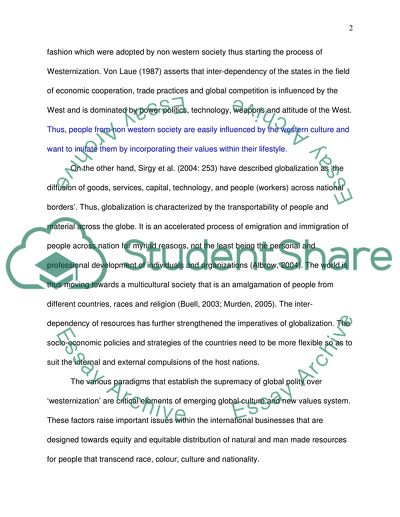Cite this document
(Impact of Globalization on the Socio-Cultural Dynamics Across the Research Paper, n.d.)
Impact of Globalization on the Socio-Cultural Dynamics Across the Research Paper. Retrieved from https://studentshare.org/social-science/1745506-globalisation-governance-politics-and-history
Impact of Globalization on the Socio-Cultural Dynamics Across the Research Paper. Retrieved from https://studentshare.org/social-science/1745506-globalisation-governance-politics-and-history
(Impact of Globalization on the Socio-Cultural Dynamics Across the Research Paper)
Impact of Globalization on the Socio-Cultural Dynamics Across the Research Paper. https://studentshare.org/social-science/1745506-globalisation-governance-politics-and-history.
Impact of Globalization on the Socio-Cultural Dynamics Across the Research Paper. https://studentshare.org/social-science/1745506-globalisation-governance-politics-and-history.
“Impact of Globalization on the Socio-Cultural Dynamics Across the Research Paper”, n.d. https://studentshare.org/social-science/1745506-globalisation-governance-politics-and-history.


